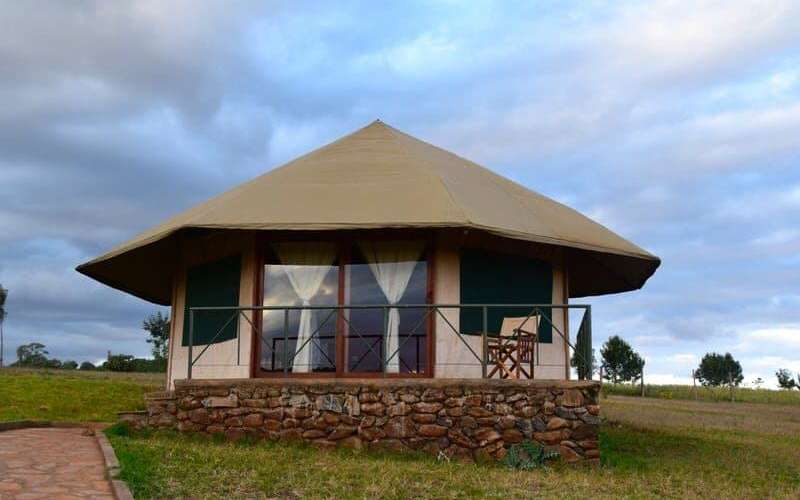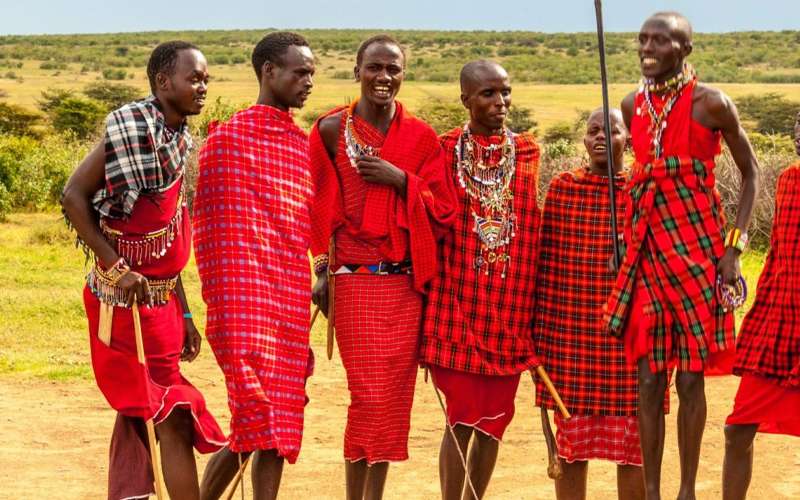Why Tanzania is the Best Destination for Eco-Conscious Travelers
For eco-conscious travelers seeking sustainable and meaningful travel experiences, Tanzania offers an unparalleled destination where conservation, community engagement, and eco-friendly tourism initiatives take center stage. From protecting its rich wildlife and vast landscapes to supporting local communities through responsible tourism, Tanzania is committed to preserving its natural beauty and cultural heritage.
In this guide, we’ll dive into why Tanzania should top your list if you’re passionate about sustainable travel. We’ll explore eco-friendly lodges, ethical safaris, wildlife conservation, and how you can have a low-impact adventure while making a positive difference.
Commitment to Wildlife Conservation
Tanzania is globally recognized for its wildlife conservation efforts. With over 38% of its land designated as protected areas—including national parks, game reserves, and conservation areas—Tanzania is leading the charge in safeguarding biodiversity.
- Tanzania’s National Parks: Iconic destinations like the Serengeti National Park, Ngorongoro Conservation Area, and Selous Game Reserve are not just tourism hotspots; they’re critical habitats for endangered species like the black rhinoceros, African elephants, and cheetahs.
- Anti-Poaching Efforts: Tanzania works tirelessly to combat poaching and illegal wildlife trade. The Tanzanian government collaborates with various conservation organizations to monitor and protect endangered species.
- Marine Conservation: Along its coastline, marine parks like Mafia Island and Mnemba Atoll in Zanzibar work to preserve delicate coral reefs, ensuring marine biodiversity is protected from overfishing and environmental degradation.
Pro Tip:
Visitors can support conservation efforts by choosing eco-friendly safari companies and lodges that directly contribute to wildlife protection programs.
Sustainable Tourism Initiatives
Sustainable tourism is at the heart of Tanzania’s travel industry. The government, along with non-governmental organizations (NGOs) and local communities, has implemented several initiatives to ensure tourism benefits the environment and the people who call Tanzania home.
- Low-Impact Travel: Many of Tanzania’s tourism operators are shifting towards low-impact travel experiences, reducing their environmental footprint. For instance, some companies use solar-powered vehicles for safaris and offer eco-friendly camping options.
- Park Entry Fees: Fees collected from tourists visiting national parks and conservation areas are reinvested in environmental preservation, anti-poaching initiatives, and wildlife research.
- Eco-Tourism Certifications: Lodges and tour operators in Tanzania can achieve eco-certifications if they meet sustainable practices such as waste management, energy efficiency, and minimal water usage.
Pro Tip:
Look for operators and accommodations certified by the Responsible Tourism Tanzania (RTT) initiative, which sets eco-tourism standards in the country.
Eco-Friendly Accommodations
Tanzania is home to a wide array of eco-friendly lodges and camps that blend luxury with sustainability. Many of these accommodations are committed to minimizing their environmental impact while providing guests with an immersive nature experience.
- Solar Power and Renewable Energy: Many eco-lodges in Tanzania rely on solar power for electricity, hot water, and even heating. Some also practice water conservation through rainwater harvesting and greywater recycling systems.
- Locally Sourced Food: Staying at an eco-lodge often means enjoying fresh, organic, and locally grown food. Many lodges have their own gardens or source ingredients from nearby communities to reduce the carbon footprint linked to transportation.
- Sustainable Building Materials: The use of sustainable materials like bamboo, wood, and thatch helps eco-lodges blend into the natural environment while reducing the need for resource-heavy construction.
Best Eco-Friendly Lodges:
- Singita Grumeti Reserves: Known for its high-end, eco-conscious safari experiences, this lodge emphasizes sustainability and wildlife conservation.
- Chumbe Island Coral Park: A small eco-lodge on Zanzibar’s Chumbe Island, dedicated to marine conservation and low-impact tourism.
- Gibb’s Farm: Nestled near the Ngorongoro Crater, Gibb’s Farm focuses on organic farming, energy conservation, and cultural preservation.
Ethical and Responsible Safaris
Tanzania offers some of the most ethical safari experiences in the world. Ethical safaris aim to respect and protect the natural environment and the creatures that call it home.
- No Off-Road Driving: Ethical safari operators follow strict rules, including not driving off-road, which can harm vegetation and disturb animals.
- Guides with Conservation Knowledge: Responsible safari operators employ guides who are well-versed in conservation and eco-tourism principles. They not only lead wildlife tours but also educate visitors about Tanzania’s fragile ecosystems.
- Minimized Footprint: Many ethical safaris in Tanzania limit group sizes to minimize environmental impact and avoid overcrowding in sensitive areas.
Pro Tip:
When booking a safari, ask the company about their conservation practices, whether they support local communities, and how they minimize their ecological footprint.
Community-Based Tourism
Tanzania offers a unique opportunity to experience authentic culture while supporting local communities through community-based tourism (CBT) initiatives. These projects empower local people, ensure that they benefit from tourism, and give travelers a chance to engage in meaningful cultural exchanges.
- Stay with Local Families: Several community-based programs offer travelers the chance to stay with local families in rural villages. This helps to boost the local economy while providing an authentic experience for visitors.
- Cultural Tours: In places like Mto wa Mbu and Lake Eyasi, you can take guided tours with local communities. Learn about traditional farming, and Maasai beading, or even try your hand at cooking a Tanzanian meal.
- Handicrafts and Souvenirs: Purchasing handicrafts made by local artisans directly supports the community. Many Maasai villages, for instance, sell handmade beadwork and jewelry that reflect their unique culture.
Pro Tip:
Always buy souvenirs directly from artisans or community-based cooperatives to ensure the money stays within the local economy.
Cultural Preservation and Eco-Education
Tanzania’s commitment to preserving its cultural heritage is just as strong as its dedication to the environment. Many eco-tourism initiatives intertwine conservation with cultural preservation, ensuring that traditional knowledge and customs are passed down to future generations.
- Eco-Education Programs: Many lodges and tour operators support eco-education initiatives that teach local children the importance of wildlife and environmental conservation. Visitors can contribute to these programs or volunteer during their stay.
- Cultural Conservation: Safeguarding Tanzania’s indigenous cultures, especially among the Maasai and Hadzabe people, is crucial. Through sustainable tourism, these communities can preserve their way of life while adapting to modern tourism demands.
Pro Tip:
Participate in cultural tours that respect and celebrate the traditions of Tanzania’s indigenous communities, ensuring that your presence is welcomed and appreciated.
Practical Tips for Eco-Conscious Travelers
If you’re planning a trip to Tanzania and want to ensure your journey is as sustainable and eco-friendly as possible, here are a few practical tips:
- Pack Light: Reduce the environmental impact of your flights by packing only what you need. Lighter luggage helps cut down on carbon emissions from transportation.
- Avoid Single-Use Plastics: Bring your own reusable water bottle, bags, and cutlery to avoid contributing to plastic waste.
- Respect Wildlife: Keep a safe distance from animals, avoid feeding them, and follow all park rules during safaris.
- Support Local: Choose locally-owned lodges, guides, and restaurants whenever possible. This ensures your money stays within the community and contributes to its development.
Pro Tip:
Consider carbon offsetting your flights by contributing to environmental projects, such as tree planting initiatives or renewable energy programs.
Why Tanzania is the Perfect Eco-Friendly Destination
Tanzania’s incredible commitment to conservation, sustainable tourism, and community empowerment makes it a top choice for eco-conscious travelers. Whether you’re hiking the slopes of Mount Kilimanjaro, exploring the wildlife-filled plains of the Serengeti, or relaxing on the eco-friendly shores of Zanzibar, your trip to Tanzania can have a lasting, positive impact.
By choosing responsible tour operators, eco-lodges, and cultural experiences, you’ll not only reduce your carbon footprint but also contribute to the preservation of Tanzania’s remarkable natural and cultural heritage.
For more details, please visit our pages:





